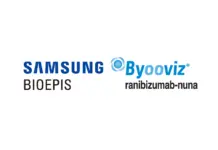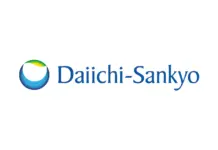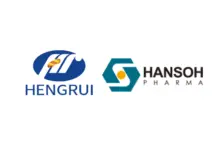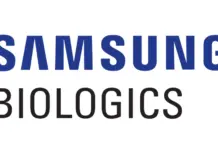Emerging markets—encompassing Asia-Pacific, Latin America, and the Middle East—have emerged as increasingly important centers for clinical research and drug development. This geographic shift reflects fundamental changes in pharmaceutical industry strategy, driven by diverse patient populations, cost-effective research infrastructure, evolving regulatory frameworks, and accelerated regulatory approval pathways. The Latin America clinical trials market alone reached USD 4.35 billion in 2024, growing to USD 4.62 billion in 2025, with projections indicating growth to USD 7.94 billion by 2034 at a compound annual growth rate of 6.20%. Simultaneously, the Asia-Pacific region is experiencing even more dramatic growth, expanding from USD 4.88 billion in 2024 to a projected USD 10.50 billion by 2033, positioning it as the fastest-growing clinical trials market globally.
Strategic Drivers of Emerging Market Growth
The acceleration of clinical trials in emerging markets reflects multiple converging strategic factors. Large patient populations with treatment-naïve status provide pharmaceutical companies with access to patient cohorts that have not been extensively exposed to existing therapeutics, enabling cleaner trial data and better assessment of drug efficacy in therapy-naive populations. For companies pursuing studies in chronic disease areas like diabetes, cardiovascular disease, or cancer, emerging market patient populations offer substantial advantages in recruitment velocity and baseline disease burden assessment.
Cost competitiveness represents another compelling strategic driver. Clinical trial costs in emerging markets can be substantially lower than equivalent studies conducted in North America or Western Europe. Colombia, for example, offers cost efficiencies exceeding 30 percent compared to trials in North America or Western Europe, while simultaneously maintaining regulatory review timelines of only 90-120 days for combined institutional review board and ministry of health approvals. These combined advantages—rapid regulatory clearance coupled with substantial cost reduction—make emerging market trials particularly attractive for early-phase research and comparative effectiveness studies.
Regulatory evolution in emerging markets has dramatically enhanced trial attractiveness. The Pan American Health Organization and World Health Organization have made concerted efforts to establish harmonized regulatory standards, accelerated approval pathways, and networked clinical trial infrastructure throughout emerging market regions. These institutional improvements increase regulatory predictability, reduce approval delays, and enhance scientific rigor by establishing consistent standards across participating countries. For pharmaceutical companies conducting multi-country trials, regulatory harmonization substantially reduces complexity and administrative overhead.
Asia-Pacific: The Emerging Powerhouse
Asia-Pacific, particularly China and India, leads the global expansion of clinical trials in emerging markets. China accounts for an increasingly significant proportion of global trial activity, driven by large patient populations, rapidly improving research infrastructure, and government initiatives to position China as a global pharmaceutical innovation hub. India’s pharmaceutical research ecosystem combines cost advantages with substantial technical expertise in clinical research operations, data management, and statistical analysis. South Korea and Singapore have emerged as premium research hubs, combining advanced healthcare infrastructure with sophisticated regulatory frameworks and highly trained clinical research professionals.
Approximately 40 percent of clinical trials documented among major nations now occur in the Asia-Pacific region, reflecting systematic capital investment in research infrastructure and regulatory capacity-building. Thailand, Vietnam, and Malaysia are emerging as increasingly important trial destinations, offering cost advantages, experienced clinical research organizations, and patient populations appropriate for diverse disease indications.
Latin America’s Rapid Emergence
Latin America has evolved from peripheral trial location to increasingly important clinical research hub. Brazil and Mexico lead the region’s expansion, offering diverse ethnic and genetic patient demographics alongside cost-effective research operations. Brazil’s advanced healthcare system—ranked #22 by the World Health Organization among 191 countries—provides credibility for high-quality clinical research while maintaining cost advantages over North American and European trial sites. Mexico similarly offers combination of healthcare system quality, geographic proximity to North American markets, and cost-effectiveness.
Colombia has emerged as particularly attractive for first-in-human studies, combining 30+ percent cost savings versus North American trials with regulatory approval timelines of 90-120 days. Strategic partnerships, including collaborations between specialized clinical research organizations and local healthcare providers, are positioning Barranquilla as a premier emerging market trial destination. These partnerships enhance trial quality while supporting local economic development and healthcare system advancement.
Comprehensive Supply Chain Impact
The geographic expansion of clinical trials fundamentally transforms pharmaceutical supply chain requirements. Multi-country, multi-region trials demand sophisticated logistics coordination, ensuring timely delivery of investigational drugs, ancillary supplies, and biological samples across geographically dispersed trial sites while maintaining regulatory compliance with region-specific requirements. This complexity substantially exceeds single-country trial logistics.
Temperature control represents a particularly critical supply chain challenge in emerging market trials. Many therapies—particularly biologics, vaccines, and advanced cellular therapies—require stringent temperature maintenance throughout distribution. Emerging markets often lack the cold chain infrastructure taken for granted in developed healthcare systems. This infrastructure gap requires specialized logistics partners equipped with active and passive temperature-controlled shipping systems, monitoring capabilities, and contingency plans for maintaining product integrity across challenging geographic and climatic conditions.
Regulatory coordination complexity multiplies substantially in multi-country trials. Each country maintains distinct requirements regarding clinical trial material labeling, documentation, shipping regulations, and local approval processes. Pharmaceutical companies must navigate these regulatory variations while maintaining study consistency across countries. Clinical research organizations with established expertise across emerging market regions possess substantial value through their ability to manage these regulatory complexities while ensuring compliance throughout trial operations.
Study Logistics and Inventory Planning
Clinical trials in emerging markets require enhanced attention to demand forecasting and inventory management. Unlike domesticated trial sites in developed healthcare systems where supply chains are highly predictable, emerging market sites often experience greater enrollment volatility and less predictable patient flow. This unpredictability necessitates more flexible supply chain management, with partnerships emphasizing adaptability rather than rigid advance planning.
Packaging needs expand substantially in multi-country trials. Multiple languages, distinct local regulatory requirements for labeling, and varying distribution requirements necessitate sophisticated packaging strategies that accommodate regional variations while maintaining central quality standards. Companies conducting emerging market trials increasingly employ region-specific packaging and labeling capabilities, enabling them to meet local regulatory requirements while maintaining supply chain efficiency.
Comparator drug sourcing becomes substantially more complex in emerging markets. Many studies employ active comparator drugs that may have regional availability variations. Clinical research organizations with established relationships across emerging market distribution networks and manufacturing partners provide substantial value through their ability to source appropriate comparators reliably, maintain consistent supply throughout trial duration, and navigate local pharmaceutical availability variations.
Digital Infrastructure and Technology Adoption
Emerging market trial expansion benefits substantially from accelerating technology adoption. Artificial intelligence and telemedicine technologies are revolutionizing trial design in these regions, enabling decentralized trial models that reduce patient travel requirements while expanding recruitment beyond geographic proximity to physical trial sites. These technologies prove particularly valuable in emerging markets where patient travel to centralized trial sites may impose substantial burden.
Real-time inventory visibility systems, data management platforms, and cloud-based trial infrastructure enable pharmaceutical companies to maintain operational oversight across geographically dispersed emerging market trial sites. These digital capabilities reduce administrative overhead while enhancing trial quality and regulatory compliance through real-time monitoring of patient enrollment, protocol adherence, and data quality.
Looking Forward: Strategic Importance and Continued Growth
Clinical trials in emerging markets represent a fundamental shift in how pharmaceutical companies approach global drug development. The combination of diverse patient populations, cost-effectiveness, regulatory advancement, and technology adoption creates compelling commercial rationale for expanded investment in these regions. Companies successfully managing the supply chain complexity and regulatory coordination inherent in emerging market trials will secure competitive advantage through faster development timelines, reduced research costs, and access to patient populations that strengthen global data packages supporting regulatory approval.
As emerging market clinical research infrastructure continues advancing, these regions will likely capture expanding share of global trial activity. Pharmaceutical companies that establish strong partnerships with experienced clinical research organizations, logistics providers, and regulatory specialists in emerging markets will position themselves advantageously for the industry’s continued globalization and increasingly distributed approach to clinical drug development.





























